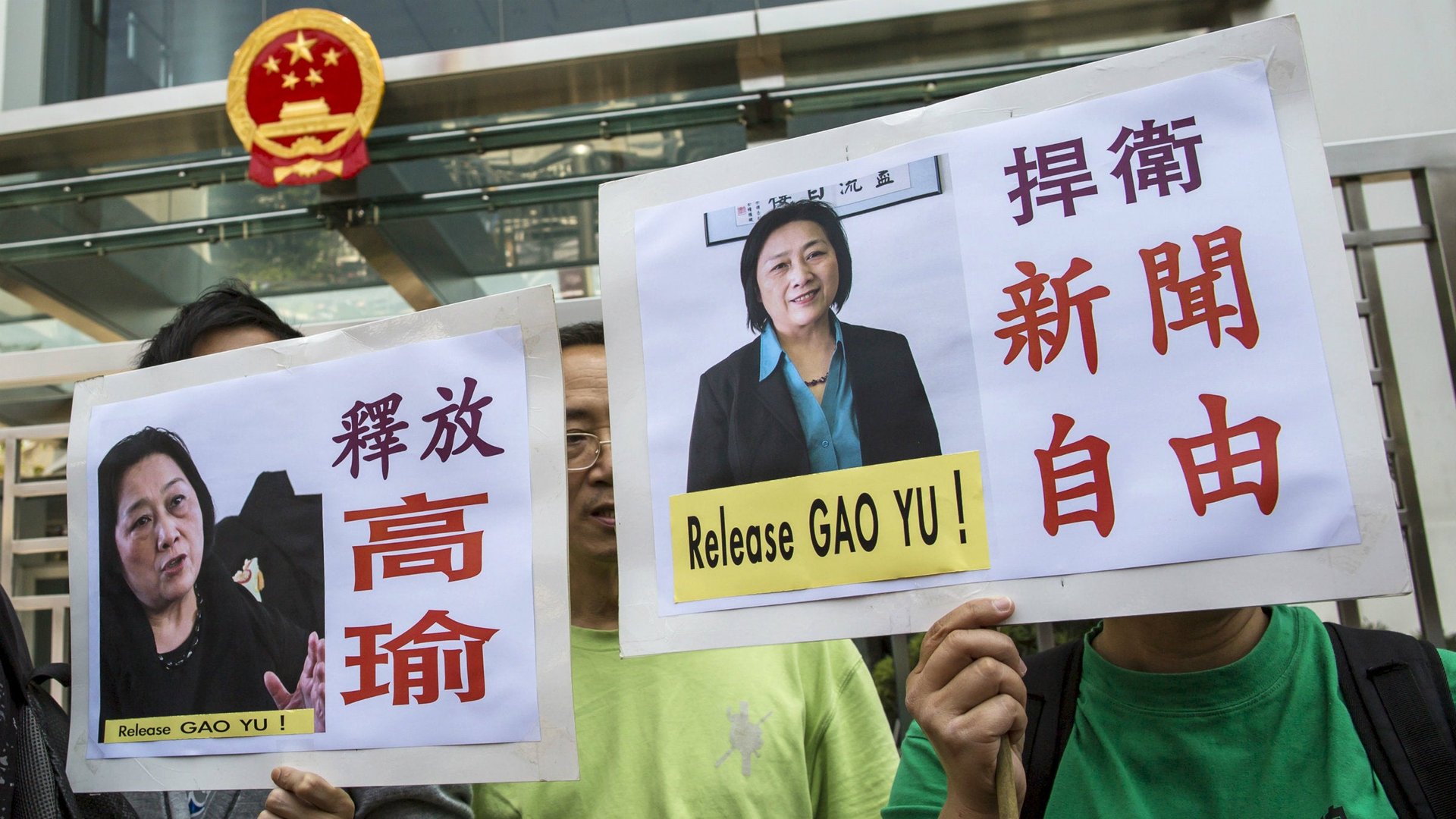In an unexpected turnaround, China released journalist Gao Yu on parole
Amidst China’s ongoing crackdown on journalists critical of the government, authorities have made an unexpected concession.


Amidst China’s ongoing crackdown on journalists critical of the government, authorities have made an unexpected concession.
Gao Yu, a 71-year-old journalist who was jailed for allegedly leaking “state secrets” to international media, was granted medical parole, Xinhua reported (link in Chinese) Thursday evening (Nov. 26), after she “pleaded guilty and expressed repentance.” Gao’s sentence was earlier reduced from seven years to five years.
Gao was detained in April 2014 for allegedly providing Ming Pao, a Chinese-language newspaper that serves the overseas Chinese community, an internal Communist Party document calling on officials to combat western ideals like constitutionalism and democracy. After delivering a televised confession she was sentenced to seven years in prison.
The document indicated Xi Jinping would tighten party control rather than reforming it. Ming Pao denied they had received the document from her. Gao and her lawyer later told media that she was forced into her confession, which was not genuine.
Mo Shaoping, Gao’s lawyer, told German newspaper Deutsche Welle on the eve of her parole grant that he initially hoped to lift the sentence entirely. “Given that China’s code of criminal procedure doesn’t really allow plea bargaining, I therefore call it plea bargaining ‘with Chinese characteristics,’” he told the paper.
Human rights activists say Gao’s sentence reduction and parole come because the international community was vocal in defending her. One Western diplomat told the Wall Street Journal (paywall) that China may have been more lenient because of a planned EU-China dialogue on human rights on Monday.
Gao’s case marks only a small win in a much tougher fight for the country’s journalists, who face detention for anything from write critical pieces about China’s stock market to reporting a story without prior approval.